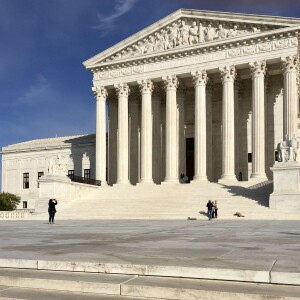
- Podcast Features
-
Monetization
-
Ads Marketplace
Join Ads Marketplace to earn through podcast sponsorships.
-
PodAds
Manage your ads with dynamic ad insertion capability.
-
Apple Podcasts Subscriptions Integration
Monetize with Apple Podcasts Subscriptions via Podbean.
-
Live Streaming
Earn rewards and recurring income from Fan Club membership.
-
Ads Marketplace
- Podbean App
-
Help and Support
-
Help Center
Get the answers and support you need.
-
Podbean Academy
Resources and guides to launch, grow, and monetize podcast.
-
Podbean Blog
Stay updated with the latest podcasting tips and trends.
-
What’s New
Check out our newest and recently released features!
-
Podcasting Smarter
Podcast interviews, best practices, and helpful tips.
-
Help Center
-
Popular Topics
-
How to Start a Podcast
The step-by-step guide to start your own podcast.
-
How to Start a Live Podcast
Create the best live podcast and engage your audience.
-
How to Monetize a Podcast
Tips on making the decision to monetize your podcast.
-
How to Promote Your Podcast
The best ways to get more eyes and ears on your podcast.
-
Podcast Advertising 101
Everything you need to know about podcast advertising.
-
Mobile Podcast Recording Guide
The ultimate guide to recording a podcast on your phone.
-
How to Use Group Recording
Steps to set up and use group recording in the Podbean app.
-
How to Start a Podcast
-
Podcasting
- Podcast Features
-
Monetization
-
Ads Marketplace
Join Ads Marketplace to earn through podcast sponsorships.
-
PodAds
Manage your ads with dynamic ad insertion capability.
-
Apple Podcasts Subscriptions Integration
Monetize with Apple Podcasts Subscriptions via Podbean.
-
Live Streaming
Earn rewards and recurring income from Fan Club membership.
-
Ads Marketplace
- Podbean App
- Advertisers
- Enterprise
- Pricing
-
Resources
-
Help and Support
-
Help Center
Get the answers and support you need.
-
Podbean Academy
Resources and guides to launch, grow, and monetize podcast.
-
Podbean Blog
Stay updated with the latest podcasting tips and trends.
-
What’s New
Check out our newest and recently released features!
-
Podcasting Smarter
Podcast interviews, best practices, and helpful tips.
-
Help Center
-
Popular Topics
-
How to Start a Podcast
The step-by-step guide to start your own podcast.
-
How to Start a Live Podcast
Create the best live podcast and engage your audience.
-
How to Monetize a Podcast
Tips on making the decision to monetize your podcast.
-
How to Promote Your Podcast
The best ways to get more eyes and ears on your podcast.
-
Podcast Advertising 101
Everything you need to know about podcast advertising.
-
Mobile Podcast Recording Guide
The ultimate guide to recording a podcast on your phone.
-
How to Use Group Recording
Steps to set up and use group recording in the Podbean app.
-
How to Start a Podcast
-
Help and Support
- Discover

SEC v. Jarkesy
In the aftermath of the Wall Street Crash of 1929, Congress passed a suite of laws designed to combat securities fraud and increase market transparency. Three such statutes are relevant: The Securities Act of 1933, the Securities Exchange Act of 1934, and the Investment Advisers Act of 1940. These Acts respectively govern the registration of securities, the trading of securities, and the activities of investment advisers. Although each regulates different aspects of the securities markets, their pertinent provisions—collectively referred to by regulators as “the antifraud provisions,” App. to Pet. for Cert. 73a, 202a— target the same basic behavior: misrepresenting or concealing material facts. To enforce these Acts, Congress created the Securities and Exchange Commission. The SEC may bring an enforcement action in one of two forums. It can file suit in federal court, or it can adjudicate the matter itself. The forum the SEC selects dictates certain aspects of the litigation. In federal court, a jury finds the facts, an Article III judge presides, and the Federal Rules of Evidence and the ordinary rules of discovery govern the litigation. But when the SEC adjudicates the matter in-house, there are no juries. The Commission presides while its Division of Enforcement prosecutes the case. The Commission or its delegee—typically an Administrative Law Judge—also finds facts and decides discovery disputes, and the SEC’s Rules of Practice govern. One remedy for securities violations is civil penalties. Originally, the SEC could only obtain civil penalties from unregistered investment advisers in federal court. Then, in 2010, Congress passed the DoddFrank Wall Street Reform and Consumer Protection Act. The Act authorized the SEC to impose such penalties through its own in-house proceedings. Shortly after passage of the Dodd-Frank Act, the SEC initiated an enforcement action for civil penalties against investment adviser George Jarkesy, Jr., and his firm, Patriot28, LLC for alleged violations of the “antifraud provisions” contained in the federal securities laws. The SEC opted to adjudicate the matter in-house. As relevant, the final order determined that Jarkesy and Patriot28 had committed securities violations and levied a civil penalty of $300,000. Jarkesy and Patriot28 petitioned for judicial review. The Fifth Circuit vacated the order on the ground that adjudicating the matter in-house violated the defendants’ Seventh Amendment right to a jury trial.
Held: When the SEC seeks civil penalties against a defendant for securities fraud, the Seventh Amendment entitles the defendant to a jury trial.
More Episodes
 2025-06-17
2025-06-17
 2025-06-17
2025-06-17
 2025-06-13
2025-06-13
 2025-06-06
2025-06-06
 2025-06-05
2025-06-05
 2025-06-05
2025-06-05
 2025-06-04
2025-06-04
 2025-04-24
2025-04-24
 2025-04-21
2025-04-21
 2025-04-09
2025-04-09
 2025-04-08
2025-04-08
 2025-04-04
2025-04-04
Create your
podcast in
minutes
- Full-featured podcast site
- Unlimited storage and bandwidth
- Comprehensive podcast stats
- Distribute to Apple Podcasts, Spotify, and more
- Make money with your podcast
It is Free
- Privacy Policy
- Cookie Policy
- Terms of Use
- Consent Preferences
- Copyright © 2015-2025 Podbean.com



